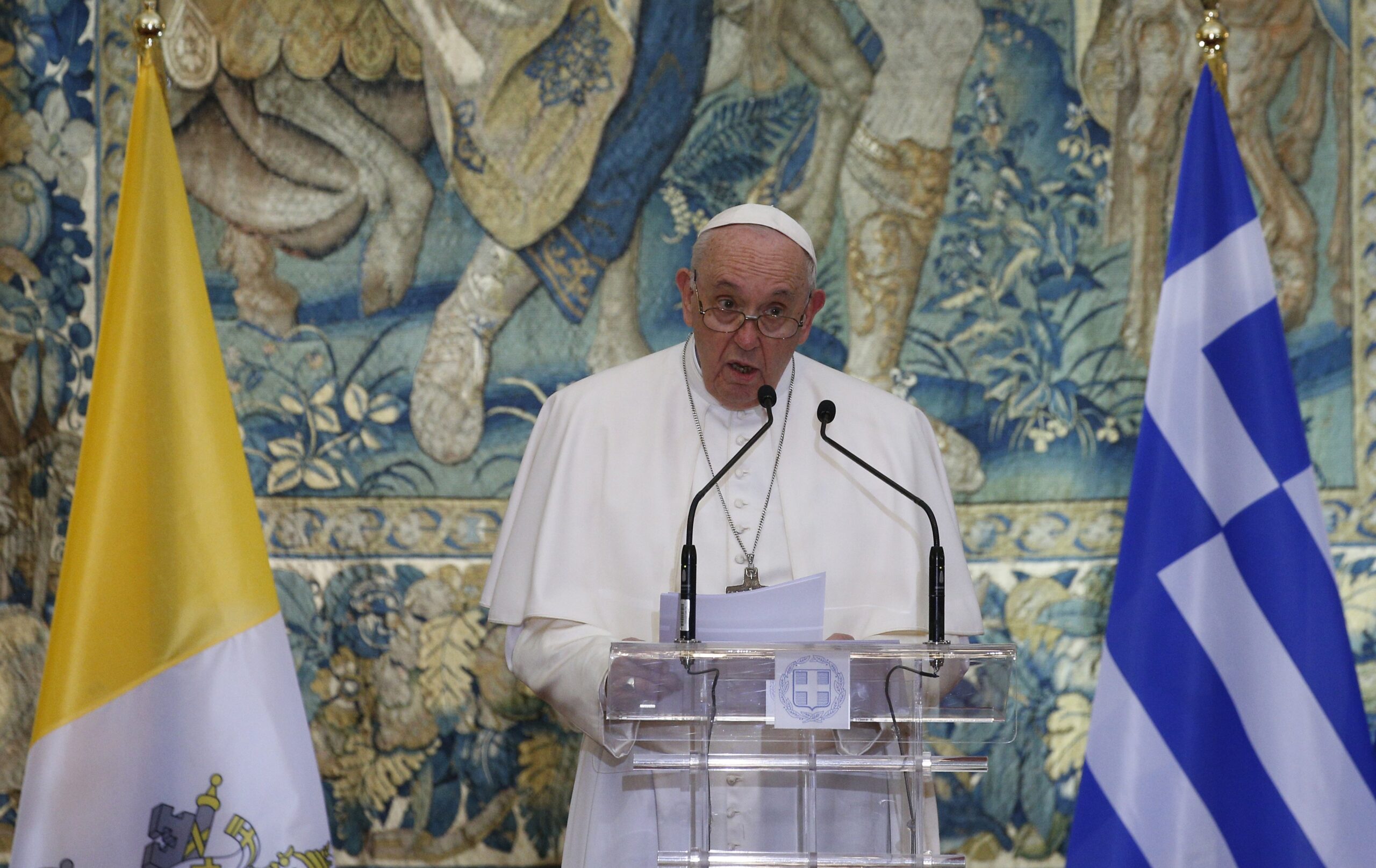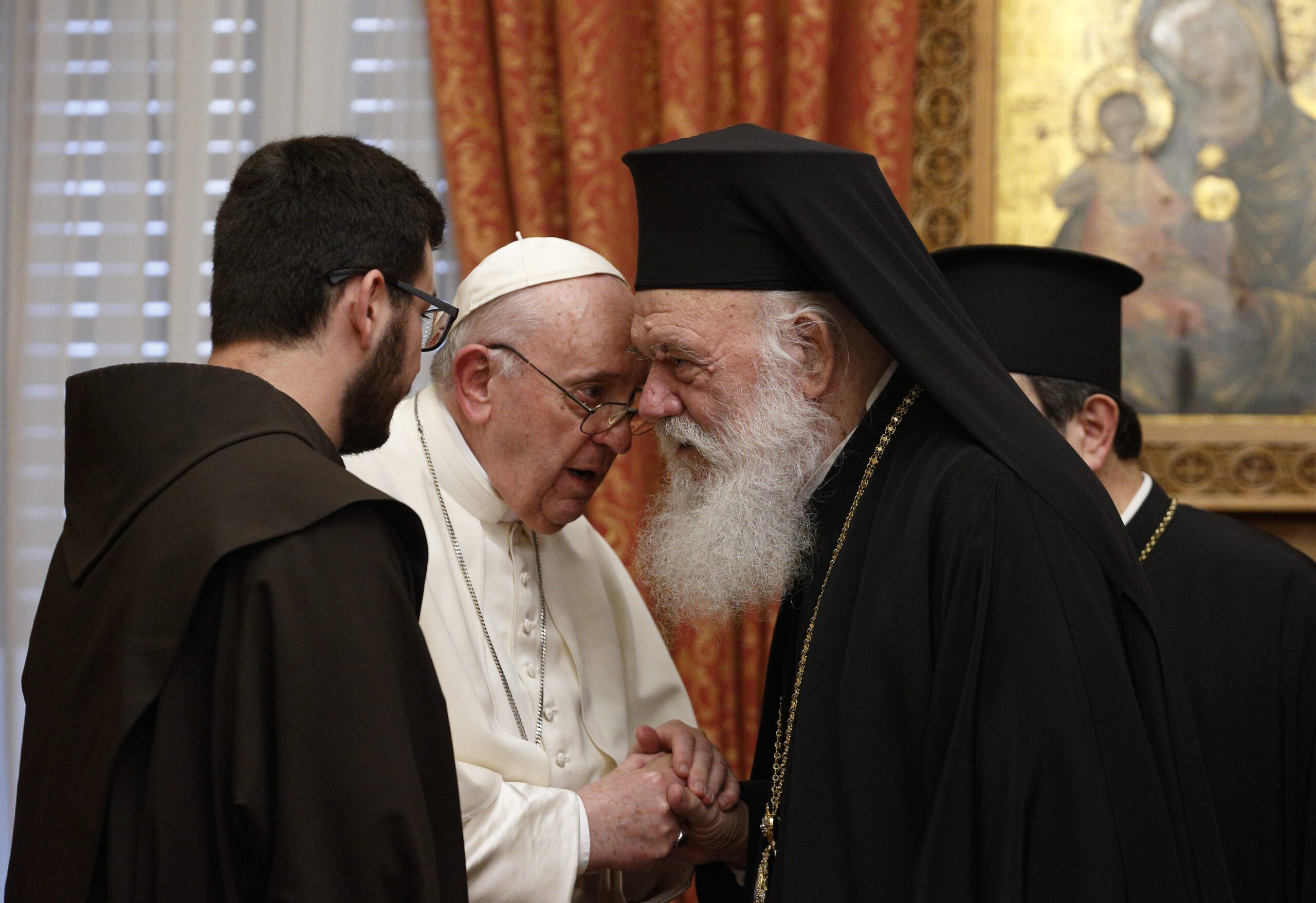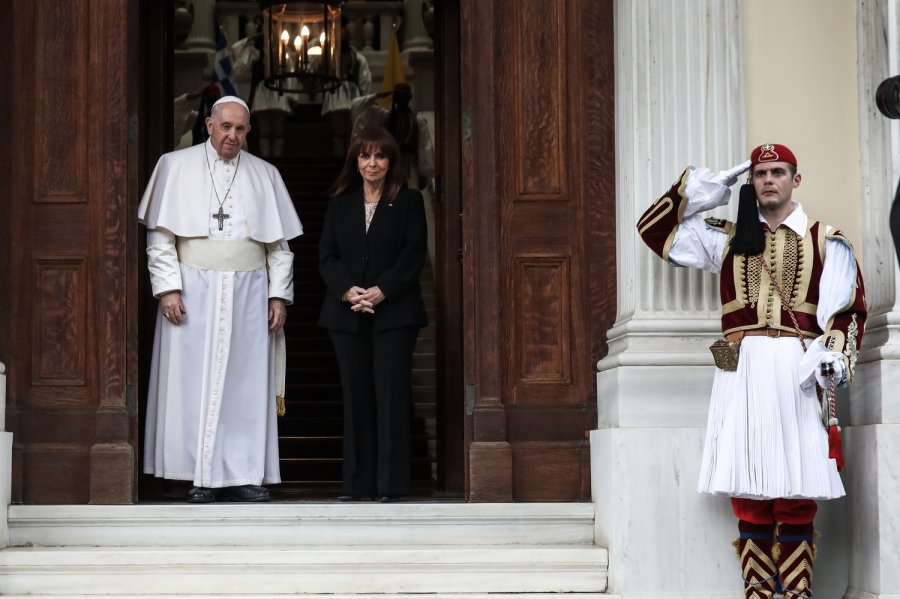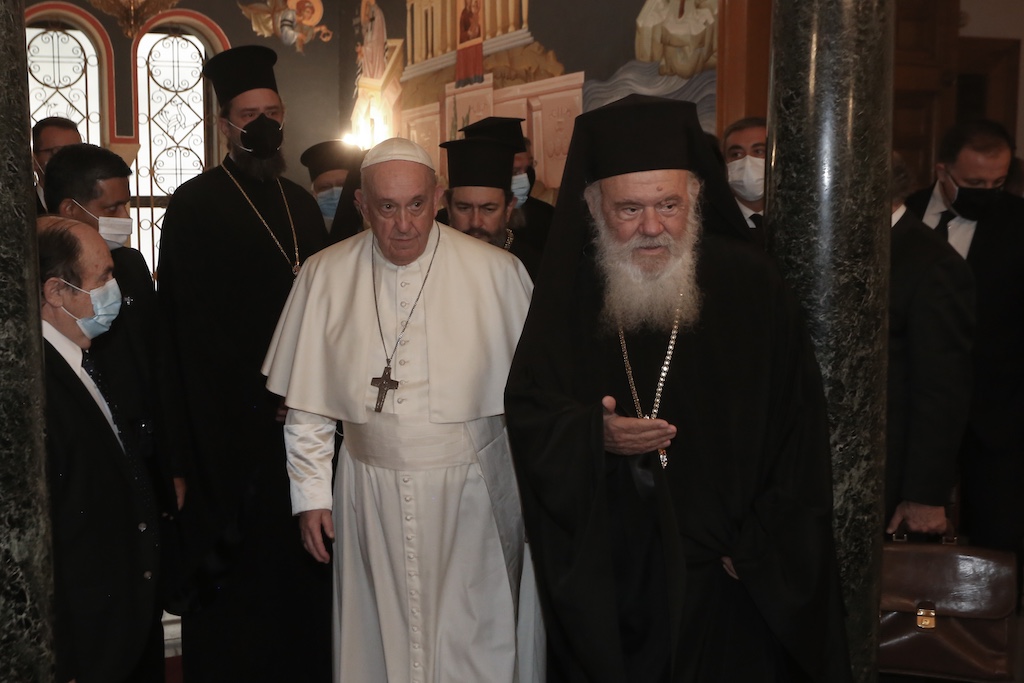This poignant moment underscored the late pontiff’s lifelong mission to foster unity between the Catholic and Orthodox Churches, a mission that brought him to Greece twice, following in the footsteps of Pope John Paul II, the only other pope to visit Athens.
A Legacy of Bridge-Building
Pope Francis, born Jorge Mario Bergoglio, embodied the Latin term pontifex—meaning “bridge builder.” His efforts to connect people, cultures, and religions earned him the title “Pope of the Poor.” His commitment to Greece was evident during the nation’s economic crisis and the migrant influx, offering support that resonated deeply with both the Orthodox clergy and Greek political leaders. Tributes from Greece have praised his compassion, respect, and solidarity.

The singing of “Christos Anesti” at his funeral was seen by many as a nod to his dream of a shared Easter celebration for Catholics and Orthodox, a vision echoed during the funeral of John Paul II, where the same hymn was chanted. These gestures symbolize a thawing of centuries-old tensions between the Eastern and Western Churches, rooted in the Great Schism of 1054.
A Historic Schism and Its Aftermath
The Schism of 1054 marked a definitive split between the Roman Catholic and Eastern Orthodox Churches, fueled by theological disputes, such as the filioque clause, and political rivalries. On July 16, 1054, during Vespers in Constantinople’s Hagia Sophia, Cardinal Humbert, representing the Western Church, excommunicated Patriarch Michael Cerularius. A week later, the Orthodox Church responded with its own anathema, cementing the divide.
It wasn’t until 1965 that a significant step toward reconciliation was taken. Ecumenical Patriarch Athenagoras and Pope Paul VI met in Jerusalem in 1964, and on December 7, 1965, both churches jointly condemned the 1054 events and lifted the mutual excommunications. Despite initial resistance from the Church of Greece, this marked a turning point in Catholic-Orthodox relations.
Diplomatic Ties Between Greece and the Vatican
Formal diplomatic relations between Greece and the Holy See were established in 1979, a move prompted by Greece’s aspirations to join the European Community. The decision, however, sparked unease within the Greek Orthodox Church, with the Holy Synod expressing concerns over the theological implications of recognizing the Vatican as a state with secular authority. Despite these tensions, the Holy See established an Apostolic Nunciature in Athens, and Greece opened an embassy to the Vatican in Rome in 1988.

The historic visit of Pope John Paul II in 2001, the first by a pope to Greece since the Schism, was a milestone. Invited by President Kostis Stephanopoulos, the visit faced opposition from some Orthodox groups, with protests labeling the pope as “antichrist.” Yet, John Paul II’s humility won over many. At the Areopagus, alongside Archbishop Christodoulos, he apologised for the Schism and the 1204 Crusades, calling the division of Christians “a sin before God.” His words were met with applause, paving the way for warmer relations.

Pope Francis’ Visits: A Message of Solidarity
Pope Francis visited Greece twice, first in 2016 and again in 2021, both times emphasising solidarity with refugees and peace. His 2016 visit to Lesbos, joined by Ecumenical Patriarch Bartholomew, Archbishop Ieronymos, and Prime Minister Alexis Tsipras, was a powerful statement during the migrant crisis. The pontiff praised the people of Lesbos for their humanity, planted an olive tree as a symbol of peace, and prayed for refugees lost at sea.

In 2021, Francis returned to Athens and Lesbos, meeting President Katerina Sakellaropoulou and Prime Minister Kyriakos Mitsotakis. At a Mass in Athens’ Megaron Concert Hall, he recited the Creed in Greek, a gesture of respect for the Orthodox tradition. In Lesbos, he lamented the world’s slow progress on the migrant issue, thanking Greeks for their sacrifices. Quoting Aristotle’s Nicomachean Ethics, he bid farewell to Greece with, “A friend is another self,” encapsulating his affection for the nation.
A Shared Path Forward
The visits of Popes John Paul II and Francis have left an indelible mark on Greece, strengthening ties between the Catholic and Orthodox Churches and fostering dialogue. For the Greek people, these moments reflect a shared hope for unity, rooted in faith and mutual respect, as both pontiffs worked to heal wounds of the past and build bridges for the future.
(Source: In.gr/Iasonas Schinas-Papadopoulos)
